The use of ammonia from aphids on roses

Roses are the adornment of any garden plot. They bloom from early spring to late autumn, but they also require some care. Roses are often attacked by pests, including aphids. Many gardeners consider the use of ammonia from aphids on this culture as a real salvation.
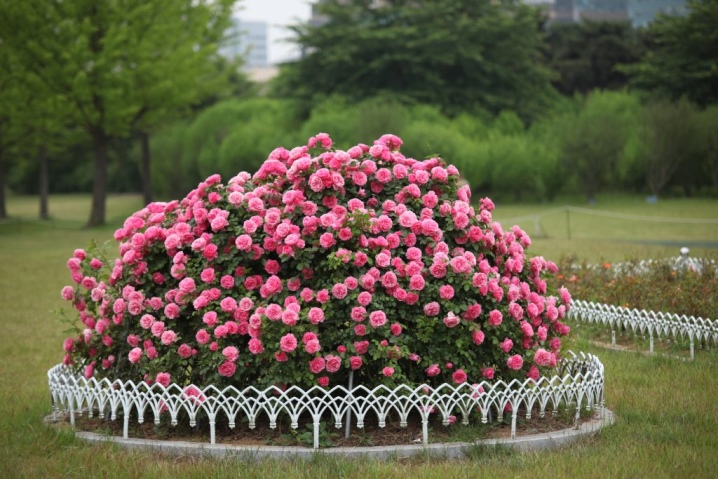
Advantages and disadvantages
The stores sell a large number of chemicals that can successfully fight aphids, as well as other pests and diseases of roses. But many experienced summer residents would never exchange folk remedies for a drug from a store, believing that nothing was invented better than solutions prepared at home.
Ammonia is one of the remedies that can help cope with such a nuisance as aphids. The invasion of this parasite in a very short period of time can destroy even the healthiest and most beautiful bushes. Therefore, measures must be taken immediately.
But, like any remedy, the use of ammonia has its pros and cons.

Consider the benefits of using it:
- you can buy ammonia at a pharmacy, at a price it is affordable;
- the solution is prepared very quickly, within a few minutes, which saves the gardener's time;
- processing is quite simple: even a beginner in gardening can easily handle it;
- to enhance the effect, you can add other components that are in every home;
- the substance copes well and quickly with aphids, provided it is properly treated;
- serves as a good prophylactic agent;
- does not cause any harm to flowers, subject to the proportions when preparing the solution;
- it can also serve as a fertilizer, having a beneficial effect on the buds and leaves of the plant;
- helps to cope not only with aphids, but also with other pests such as caterpillars, ants, etc.
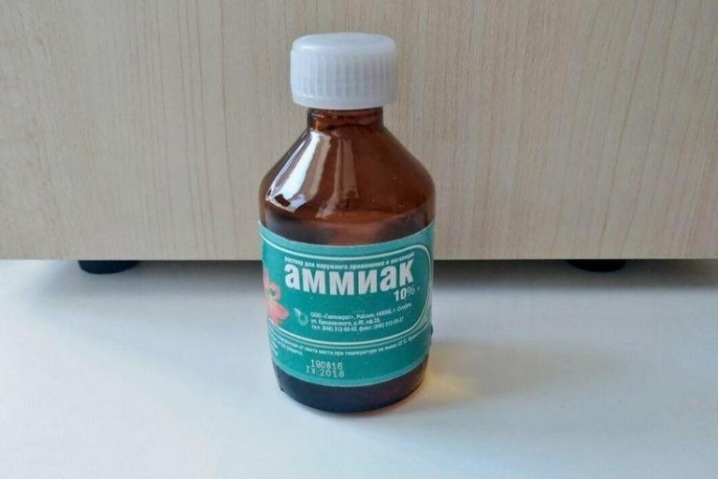
The disadvantages include the fact that ammonia has a strong odor, which, with prolonged contact with the solution, can affect a person in a bad way. Therefore, plants should be sprayed using a mask and gloves. The downside is that if used improperly, you can harm the flowers, so you need to take a responsible approach to the preparation of the solution and observe the proportions.
This option is nevertheless gentle compared to the chemicals available in stores. Therefore, the processing will have to be repeated.
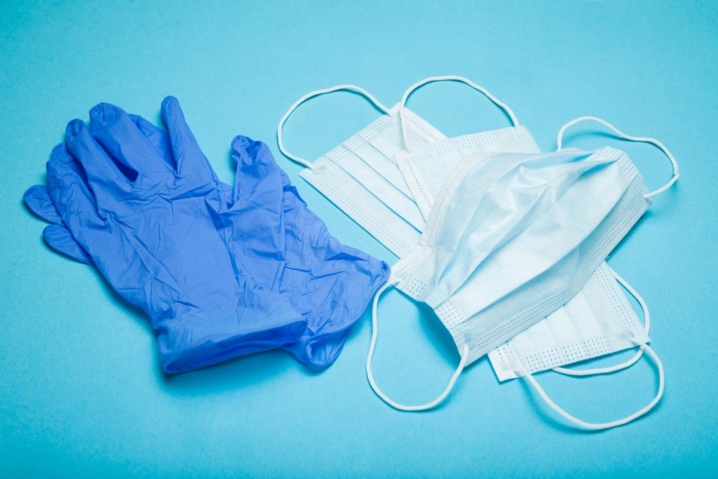
The best recipes with ammonia
To prepare an effective solution, it is enough to take 50 ml of ammonia and dissolve in ten liters of water. This dosage is suitable if reprocessing or preventive measures are applied. If the bush is very strongly affected by aphids, the proportions can be changed. Ammonia will make up a larger percentage, for example 60 or 70 ml. You can dilute ammonia together with various ingredients that will deal a powerful blow to pests and will not give them a chance to return again.
With soap
The soap solution can be prepared in two ways.
The first involves diluting 50 ml of ammonia in ten liters of water. You also need to take half a bar of laundry soap and grate, then add to the solution and stir well, achieving complete dissolution of the soap gruel.
In the second option, several tablespoons of any liquid soap are added to the ammonia with water. Convenience lies in the fact that such a solution is prepared faster, and the effect will not be worse.
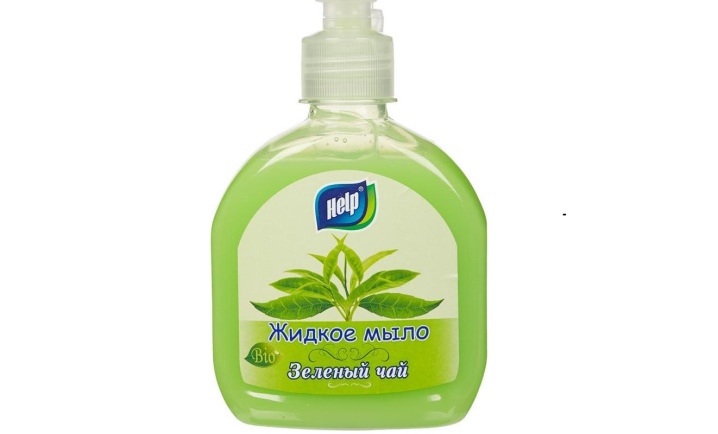
With salicylic acid
Salicylic acid is also good at fighting aphids. Add 50 ml of ammonia and acid to a ten-liter bucket of water.
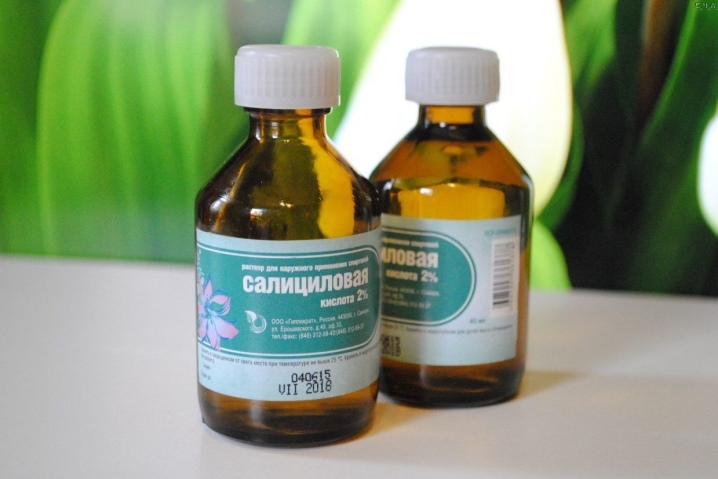
With washing powder
In this case, everything is done, as in the recipe with soap, only a handful of powder is added instead of the latter, which should be thoroughly dissolved in water.
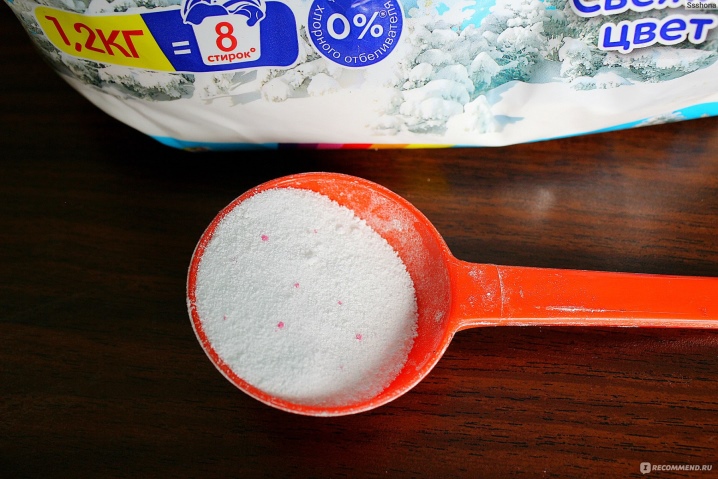
With wood ash
Ash will not only help get rid of aphids, but it will also serve as a fertilizer for roses. Two handfuls of ash are poured into the prepared water with ammonia. Beforehand, you need to grind it well so that it dissolves better. Then all this is thoroughly mixed and the solution is allowed to brew a little.
It is better to first dissolve the ash in water, and then add ammonia.
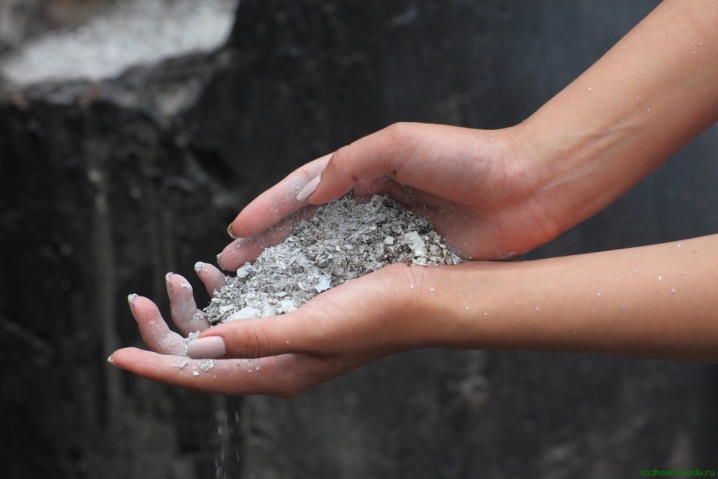
Processing technology
The fight against aphids has its own nuances. The solution must be poured into a spray bottle, you can also use a regular plastic bottle with a special spray nozzle. But it is not enough just to spray the bushes: you still need to properly process the leaves from the inside, the flowers and completely the stems.
Aphids stick around the leaves from the inside, as well as stems and flowers. Therefore, you need to pay attention to each leaf, washing off the parasite from the plant with a powerful jet. She especially loves young leaves, so you should pay special attention to them.
Spraying should be done in dry, calm weather, early in the morning or in the evening. The affected bushes will have to be processed several times, with an interval of two weeks. When the aphids are completely removed from the bushes, the second treatment can be done with a watering can, well watering the bush with a solution.
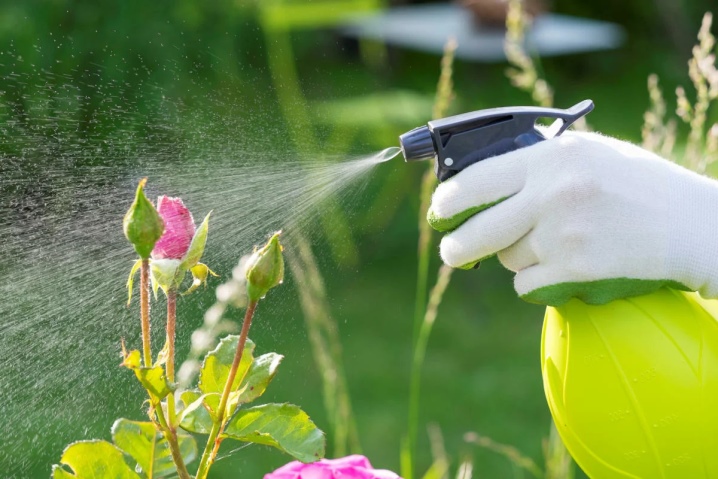
But it is best not to use the entire arsenal of anti-aphid remedies when it has already firmly established itself on roses, but to prevent its appearance. To do this, by choosing any of the preparation methods, treat the plants in the spring, and then repeat the treatment once a month during the season.
If you leave everything to chance and do not deal with pests, roses can simply die. Therefore, you need to inspect the plants regularly. If the bush is severely damaged, the damaged shoots should be cut off and burned. The plant will need to be carefully processed. When treating bushes, remember that appropriate clothing must be chosen for gardening work.
Gloves and face shield must be worn.
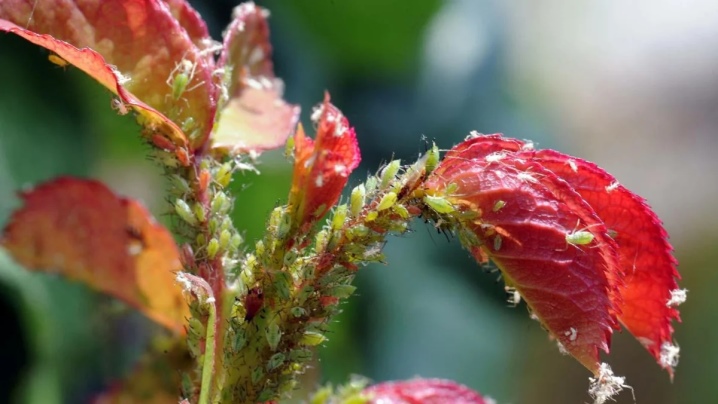
Common mistakes
If these solutions did not have the desired effect, this can only mean one thing: the work was performed incorrectly. Therefore, you should pay attention to the mistakes that novice gardeners sometimes make.
- The solution has an insufficient content of ammonia, therefore it cannot have the desired effect. This suggests that proportion is very important.
- On the contrary, there is a lot of ammonia. In addition, it is worth considering that this substance cannot be used in its pure form.
- Without thorough cleansing of the leaves, simple spraying may not produce the desired result. It is very important to wash off all the aphids from the bush so as not to leave her a chance.
- Processing in windy conditions or before rain can also render the process useless. In the first case, there is no way to properly process the landings. In the second, all the processing results will be meaningless, because the rain will wash everything away.
- It makes no sense to water or process the bushes with a solution that was prepared a few days ago. All the necessary substances evaporate, the solution loses its properties. Therefore, the composition should always be only fresh.
Adhering to the rules for preparing a solution and processing roses, you can get rid of aphids for a long time and enjoy the sight of beautiful and healthy flowers, which will become the best decoration of the garden.

For the use of ammonia from aphids, see the video.













The comment was sent successfully.